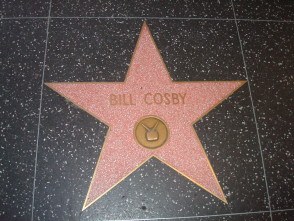Bill Cosby and settling before taking a deposition
 Bill Cosby. All I can say is “WOW.” I haven’t seen the entire transcript, but the portions I have read are mind-blowing.This is the best link I can find summarizing some of Cosby’s most inflammatory testimony. I’ve been involved in lots of depositions and seen a bunch of incredible deposition videos, but this testimony is some of the most damning answers I’ve ever seen. Here are two ideas you should keep in mind when it comes to settling in a timely manner and keeping the dialogue as straightforward as possible in a deposition.
Bill Cosby. All I can say is “WOW.” I haven’t seen the entire transcript, but the portions I have read are mind-blowing.This is the best link I can find summarizing some of Cosby’s most inflammatory testimony. I’ve been involved in lots of depositions and seen a bunch of incredible deposition videos, but this testimony is some of the most damning answers I’ve ever seen. Here are two ideas you should keep in mind when it comes to settling in a timely manner and keeping the dialogue as straightforward as possible in a deposition.
Sometimes you have to settle before you client can be deposed.
- When you got the Quaaludes, was it in your mind that you were going to use these Quaaludes for young women that you wanted to have sex with?
- Yes.
Any lawyer representing someone against allegations of rape has to have an idea of what their client will say in a deposition. Often you don’t have the luxury of having a client with the means to settle, but Mr. Cosby certainly has the means. In my opinion, if you know your client will have to proffer such testimony if asked, then you have to do everything in your power to settle BEFORE the deposition occurs.
Now it’s easy for me to armchair quarterback this case. Often, celebrities like Mr. Cosby think the rules don’t apply to them and may refuse to attempt to settle. Or the plaintiff absolutely refuses to negotiate. So it’s not as if you, the lawyer, can fiat a settlement. But you should still try your absolute best to get a settlement. It only gets worse (as it has for Mr. Cosby) once testimony like this comes out. The good news is that you can use this particular case as an example to future clients who may be intransigent when it comes to discussing settlement.
Jokes don’t come through well.
Cosby said in a deposition that he asks his employees to sign confidentiality agreements. He said: “We ask them—they have a choice. And the answer is yes, but they have a choice.” When asked what happens if they don’t sign, Cosby replies: “We kill them. No, they just don’t sign.”
Of course Mr. Cosby is joking, but the tone, inflection, and other verbal and non-verbal cues don’t come through in the dry text. This is a perfect example why – if you allow your client to be deposed – they shouldn’t make jokes.
Sometimes you’re going to be on the bad side of the case. Your client did something horrible and there’s no way around it. If you can, settle before your client has to admit to the terrible circumstances under oath and always consider the tone and style of speech your client may use in the deposition.

Leave a Reply